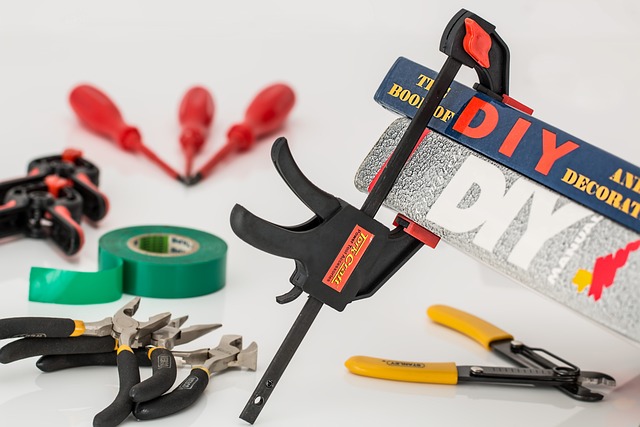Contractors have access to specialized financial solutions designed for home improvement projects, distinct from traditional personal loans. These solutions offer flexible repayment options that align with construction project timelines, aiding cash flow management. Homeowners benefit from these tailored financing products when working with contractors who offer them, as it simplifies the process of undertaking renovations ranging from minor upgrades to complete home overhauls. Contractors are encouraged to explore various lenders and focus on construction-specific loans to secure competitive rates and terms for their clients, ensuring affordable and timely project completion. These financial tools not only facilitate the enhancement of living spaces but also enable contracting businesses to manage larger projects without immediate financial strain. By providing financing options, contractors can broaden their client base and offer a more comprehensive service package. It's crucial for both contractors and homeowners to have a deep understanding of these financing solutions to navigate the process efficiently, leading to successful outcomes and a strong collaborative relationship. Contractor financing is an integral aspect of home improvements, with various funding avenues like hard money loans, conventional bank loans, and SBA-backed loans available, each with its advantages and drawbacks based on project needs and financial health. A well-prepared application, including a detailed project proposal and evidence of financial stability, is essential for securing funding. Contractors should compare offers from multiple lenders to get the most favorable terms and rates, which are critical for project success and client satisfaction. Understanding contractor financing options is key for successful home improvement projects.
Contractors embarking on home improvement projects often face financial hurdles. This article demystifies contractor financing, guiding you through the various options available to fund your endeavors. We’ll explore eligibility criteria and select the most suitable loan type for your needs. Additionally, we navigate the application process, offering insights to secure funding effectively for your projects, ensuring your business thrives while enhancing clients’ properties with home improvements.
- Understanding Contractor Financing Options for Home Improvements
- Assessing Your Eligibility and Choosing the Right Loan Type for Contractors
- Navigating the Application Process and Securing Funding for Your Projects
Understanding Contractor Financing Options for Home Improvements

Contractors looking to finance home improvement projects have a variety of options tailored to their unique needs. Unlike traditional personal loans, contractor financing solutions are specifically designed to accommodate the nature of construction work. These financing options often come with flexible repayment terms that align with project timelines, allowing for a more seamless integration into the contractor’s cash flow management. For homeowners, partnering with a contractor who offers or has access to these tailored financing solutions can streamline the process of renovating their homes, from kitchen upgrades to complete home transformations. It’s crucial for contractors to explore various lenders and programs that specialize in construction loans to provide clients with competitive rates and terms. These financial tools not only facilitate the improvement of living spaces but also support the growth and sustainability of contracting businesses by enabling them to take on projects without the immediate financial strain. Homeowners benefit from the expertise of seasoned contractors, while contractors can expand their client base by offering these financing options as a service. Understanding the intricacies of contractor financing for home improvements is key to ensuring successful and timely project completion, fostering a positive partnership between contractor and homeowner.
Assessing Your Eligibility and Choosing the Right Loan Type for Contractors

Contractors looking to secure financing for home improvements have a range of options to consider, each tailored to different financial scenarios and project requirements. Assessing your eligibility is a critical first step; it involves evaluating your credit score, income stability, and the potential return on investment from the projects you plan to undertake. Lenders will scrutinize these factors to determine your ability to repay the loan, as contractor financing is a significant commitment.
Once your eligibility is established, selecting the right type of loan becomes paramount. There are various loan types designed for contractors, including hard money loans, conventional bank loans, and SBA-backed loans, each with its own set of terms and conditions. Hard money loans, often quicker to secure but more expensive in terms of interest rates, can be ideal for projects that need immediate funding. Conventional bank loans might offer lower interest rates but may come with stricter underwriting criteria. SBA-backed loans can provide a middle ground with competitive rates and flexible repayment options. Contractors must weigh the pros and cons of each option, considering factors such as project timelines, loan amounts, and their own financial situation to choose the most suitable type of contractor financing for home improvements.
Navigating the Application Process and Securing Funding for Your Projects

When contractors seek to fund home improvements, understanding and navigating the application process for contractor financing is paramount. This process typically involves a thorough assessment of the project scope, financial history, and creditworthiness by lenders. To secure funding, contractors must compile comprehensive proposals that outline the specifics of the project, including detailed cost estimates, timelines, and expected outcomes. Lenders often prefer projects with clear start and end dates, as this reduces risk and allows for more precise planning of repayment schedules. Contractors should be prepared to present a robust business plan, recent financial statements, and any past successful projects to demonstrate their ability to manage the funds effectively and complete the project as proposed. Additionally, exploring various financing options, such as hard money loans or SBA-backed loans, can provide contractors with the necessary capital for home improvements while considering the interest rates and terms that align with their financial capacity and project requirements. Engaging with a variety of lending institutions to compare offers can lead to more favorable terms and rates, ultimately facilitating successful project execution and client satisfaction.
In conclusion, contractor financing serves as a pivotal tool for homeowners seeking to undertake improvements, ensuring that professionals can execute their projects efficiently. Homeowners must carefully assess their eligibility and select the most suitable loan type for contractors, which aligns with their project’s scope and financial requirements. The application process, though detailed, is critical in securing the necessary funding. By understanding the various financing options available and navigating these steps methodically, contractors can fulfill home improvement needs effectively. It is advisable to explore these financing solutions early in your planning stage to ensure a smooth project execution. Contractor financing, tailored for home improvements, remains an indispensable aspect of realising quality renovations without compromising financial stability.
